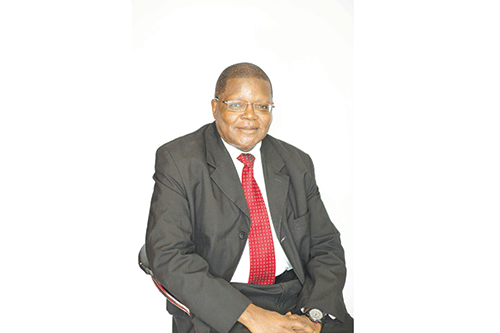As the year 2023 comes to a close soon, I have decided to give readers some feedback from one opinion piece published in this column that received the most local and internal attention this year.
The title of the article is ‘Only PhD holders should lecture in universities’ published on 10 March 2023 in the New Era. Garnering more than 1 200 comments on Facebook, most of them negative, and getting published as it was in reputable international publications, there is no reason to doubt that this opinion piece was one of the most controversial writings I have produced this year.
As a seasoned columnist and academic, I did not take offence at all at the negative comments the article attracted on Facebook; I respected the readers’ comments as they had the freedom to express their thoughts in the manner they did on this matter. In the same vein, I equally had the freedom to write and express my thoughts as I did on this issue.
Most comments rubbished the practice of universities making it mandatory for all academics to possess a PhD as the requirement for employment. Like in most cases in which some readers do not read articles in depth to get the gist of the matter, it appeared to some readers that I was the one urging universities to get rid of academics who hold master’s degrees.
I came under heavy attack, with some readers insinuating that I wanted to create jobs for foreigners to take over universities in this country. So, to most readers, I am a bad guy who is advocating the replacement of master’s degree holders in universities. What they missed was that I was just giving my opinion on a practice that universities had already started implementing. In other words, the decision to demand PhDs for academic work at universities was a fait accompli.
Other readers, most probably those in academia, argued that master’s degree holders are capable of handling academic matters just like PhD holders, or even better than PhD holders, they added. Some master’s degree holders are better researchers than academics who have PhDs. There is nothing special about having a PhD as some PhD holders perform dismally or do nothing extraordinary to prove that they have doctoral degrees. So, why worry about forcing master’s degree holders to obtain this ‘useless’ PhD qualification? The qualification ‘adds no value’ to education, some argued.
It was also felt by some readers that it is unfair for universities to give master’s degree holders a time frame to study for doctorates as this gives them unnecessary pressure. They should be allowed to attain their PhDs naturally at their own pace. The termination of employment for master’s degree holders at the end of the grace period granted by universities was heavily condemned. It is unconstitutional, some said.
One academic had this to say: “Though this article dreams well for future of universities, we should be cognizance of the fact that at present not all PhD holders produce the standard expected at universities. Not only local (I assumed the article refers to Africa) but also globally. Publications outputs by universities are evidence to this claim. Master’s degree holders possess the skills, knowledge and expertise that renowned universities need to move forward particularly in many specialized areas. Yes, PhDs are needed but master’s holders may fill gaps that are crucial to higher education institutions, that’s why up to today you find lecturers with master’s degrees at Makarere University and many others. In China for example, they categorize universities into research and teaching universities. This distinction influences appointment requirements.”
While the debate rages on concerning the PhD policy for lectureship at universities, I reiterate that master’s degree holders teaching in universities must take this policy positively. The policy must galvanize them into action before it is too late. There should be no room for prevarication and resistance when it comes to obtaining a PhD for those who want to remain in academia.
*Professor Jairos Kangira is a professor of English at the University of Namibia. E-mail address: kjairos@gmail.com



